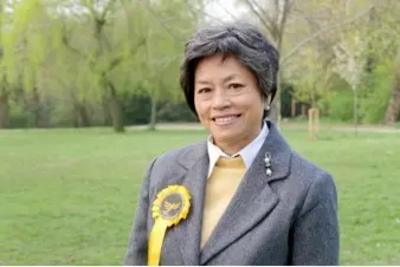Hong Kongers Seeking Help on their Arrival in the UK

am a Councillor on Tunbridge Wells Borough Council and I reported to the Overview & Scrutiny Committee at our March meeting that we had to be vigilant when Hongkongers with BN(O) status start to arrive in the country in family groups. I warned that with hate crime on the rise, even in Tunbridge Wells, the Community Safety Team had to be on the alert that people are not being attacked for their ethnicity. Hate crimes had risen by 3.2% since last year due to the constant repetition on the media that Chinese were responsible for the spread of the "Wuhan virus". This is untrue as recent studies have shown Covid-19 had been brought into the UK via Europe. It was most likely from Northern Italy where there was a severe outbreak of C-19 cases with over 6,000 recorded deaths by mid March.
In a study by Hongkongers in Britain1, more Hong Kong migrants are expected to arrive in the UK and most will be bringing their children with them. They will need help with finding accommodation, jobs and will require social integration when they settle down. A typical BN(O) visa applicant does not have any family or friends in the UK and plans to rent a place when he or she arrives. The questionnaire asked whether they could support themselves upon arrival. Whilst the vast majority (86%) can support themselves in the UK for the first six months, there is a minority (16%) who say they do not. Therefore, the government will need to formulate plans to accommodate the younger, less financially secure migrants. For this reason, it has been suggested that the health surcharge be reduced to £400 pa instead of the £1,560 over 30 months or £3,120 over 5 years.
They are a vulnerable group due to the Hong Kong protests since 2019 - a small proportion of them have been arrested for charges relating to the pro-democracy protests; a few suffered physical injuries while over a quarter suffered from psychiatric harm. The latter group will need follow-up mental health support when they come to the UK.
45% of the respondents made recommendations to address certain issues mainly surrounding concerns about safety and freedoms; many hope that the BN(O) visa scheme could exclude those who may harm nationality security and Hongkongers' safety as not all have protection e.g. those born after 1997 and do not have the right to apply for BN(O) visa scheme in their own right.
The Policy Study is calling for separate programmes, schemes and policies to cope with the large numbers of Hong Kong migrants requiring Home Office support similar to that of the EU Citizen Settlement Scheme. Another potential threat is political infiltration and surveillance by the Chinese Communist Party, whose agents will target Hongkongers making community integration difficult. The founders call for effective measures like vetting and background and character checks against BN(O) visa applicants.
How can Local Authorities help BN(O) visa applicants?
Once the Hong Kong migrant has arrived in the UK, it will be necessary for many support programmes, some of which are mentioned above.
On Education, local councils will require more funding to handle the demands for state school education; depending upon where these children settle, it may need further pupil premium support to assist with language and with mental health needs
Young people from 18 years and over may need higher education loans and grants and may therefore, seek low interest loans.
Schools may have to provide programmes to help young students with continuing their studies which were interrupted due to political suppression in HK
Local authorities could facilitate apprenticeship programmes.
On Employment, government may have to implement a scheme similar to recognition of the non-EU qualifications whilst facilitating job seeking, matching or apprenticeship by setting up job centres for BN(O) visa holders.
HKB suggestions for integration into UK life
These include the exemption from proof of address for opening of bank accounts or rental accommodation by the use of Post Office addresses. Where required local authorities could provide temporary accommodation whilst migrants settle down and provide practical information on registering for a GP or dentist, a school, closest pharmacy, banking, where to find accommodation, shopping/retail, where to find parks, sports centres, cinema, theatres, libraries and community centres.
